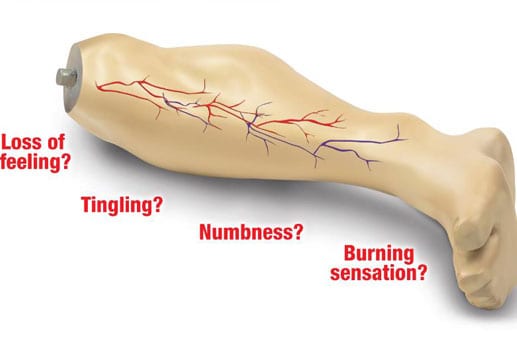You are what you eat, and this is especially true for people with diabetes. If you are a diabetic, you already know the drill. You know what you eat, when you eat and how much you eat can cause a spike in your sugar levels.
For better or worse, diet and diabetes go together, like the Force and Jedi.
In conjunction with World Diabetes Day, let’s start eating a healthy diet, before complications ensue.
The theme of World Diabetes Day 2014 to 2016 is “Healthy Living and Diabetes”, with the focus this year on healthy eating as a key factor in preventing the onset of type 2 diabetes; and how to effectively manage all types of diabetes to avoid complications.
According to the 2011 National Health and Morbidity Survey conducted by the Health Ministry, about one in seven Malaysians are diabetic, which means diabetes afflicts a staggering 15.2% of the country’s population.
It is a growing pandemic worldwide, with currently 387 million people living with the disease.
According to statistics given by the International Diabetes Federation, one in 12 people have diabetes; one in two people are not even aware that they have diabetes; every seven seconds, one person dies from diabetes; and approximately 600 million people will be living with type 2 diabetes by the year 2035.
One of the main complications of diabetes is diabetic nerve damage. Approximately 60-70% of diabetics have some form of nerve damage.
Those with diabetes can develop nerve problems at any time, but the risk rises with age and the duration of diabetes. The highest rates of neuropathy are among people who have had diabetes for at least 25 years.
Diabetic neuropathies also appear to be more common in those who have problems controlling their blood glucose, as well as those with high levels of blood fat, high blood pressure and are overweight.
Nerve damage arising from diabetes is called diabetic neuropathy. Peripheral neuropathy is the most common type of diabetic neuropathy.
The majority of the peripheral nerves are responsible for sensations you feel, such as touch, pain and temperature.
There are literally millions of these nerve endings in your fingers, hands, toes and feet, which are designed to keep you out of danger and away from the things that are hot, cold, sharp, etc.
Another type of nerve damage affecting diabetics is autonomic neuropathy. It affects the nerves that send signals to your heart, stomach, bladder or sex organs.
One of the common causes of nerve damage is prolonged exposure to high blood sugar, which can damage the delicate nerve fibres.
High blood sugar interferes with the ability of nerves to transmit signals.
It also weakens the walls of the small blood vessels (capillaries) that supply the nerves with oxygen and nutrients.
Common symptoms of nerve damage include tingling and numbness in the feet or hands, burning sensation in affected areas, and loss of feeling, which is particularly dangerous and alarming as it can allow sores and injuries to go unnoticed, leading to serious infections and possible amputations if proper medical care is not given.
Statistics show that up to 70% of diabetics have nerve damage that can lead to amputation.
Are you aware that the risk of amputation is 27.7 times greater in diabetics, and that diabetics account for half of all amputations carried out in hospitals?
However, with comprehensive management, a large proportion of amputations related to diabetes can be prevented.

Adhering to a healthy lifestyle encompassing a healthy low-sugar diet, regular exercise and foot examinations, as well as taking some beneficial nutritional supplements is advised.
Scientists have discovered that damaged nerves can be regenerated with a simple supplement known as mecobalamin, the neurologically active form of vitamin B12.
With mecobalamin, the liver does not need to convert the inactive form of B12, cyanocobalamin, to mecobalamin, as it is already orally active.
Mecobalamin has the ability to not only help prevent and regenerate damaged nerves, but also helps promote healthy nerves and protects against the degeneration of the nervous system.
Your health is in your hands. Reduce your risk of developing type 2 diabetes today by following a healthy lifestyle, or even delaying its complications if you already are a diabetic!
